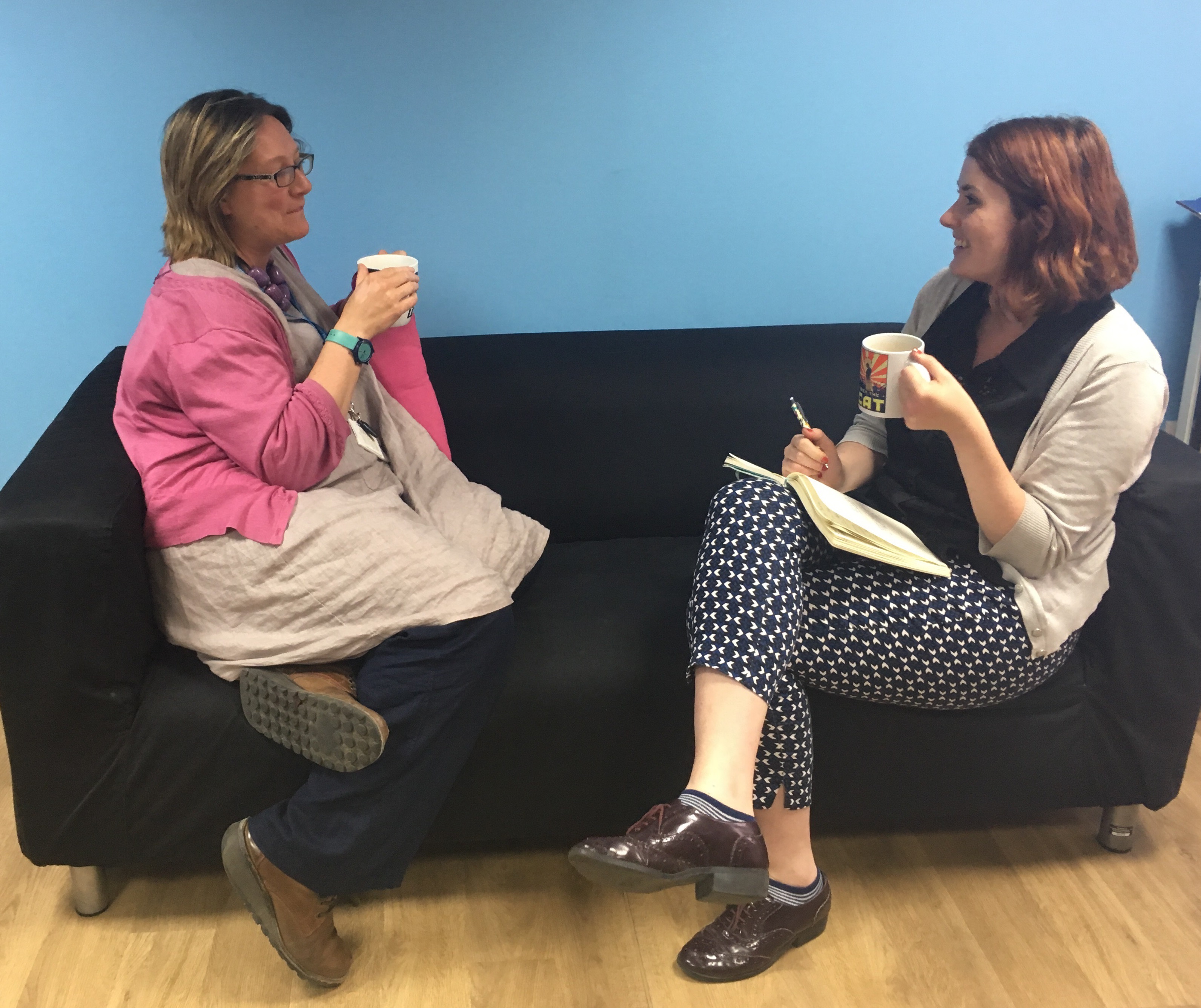16th June 2017
Ruth Davies is the Communications Officer at SafeLives. In this series she'll interview a different team member every month – over a nice cup of tea.
Jo Morrish is the Head of Learning and Accreditation at SafeLives
Ruth: Hi Jo, and congratulations on your ten year anniversary here at SafeLives! Could you start by telling me a bit about your background and how you came to SafeLives?
Jo: I was working at North Devon Women’s Aid many years ago, and I managed to get on the first Idva training course run by CRARG [the first incarnation of SafeLives] so that was how I met Diana Barran [SafeLives CEO]. I then did some freelance training work with what was then CAADA, and then started working here full time in 2007. Before working at Women’s Aid I’d been a youth worker too.
And now you’re Head of Learning and Accreditation at SafeLives – could you talk a bit about what your team has coming up in the next year?

Jo: So Learning and Accreditation really does two things. Firstly we deliver the training that SafeLives offers, which is obviously a huge part of what we do, and we’re also responsible for quality assessment of services – that’s the Leading Lights accreditation and the Service Managers course within that. So over the next year we’ll be running the Service Managers courses and working with those services to help them meet our standards for provision, and giving them Leading Lights status if they do.
In terms of training, we deliver over 400 days worth of training a year which is split between our accredited domestic abuse training, and training for other multi-agency professionals – so the police, Marac representatives for example. Over the next year we’re rolling out our new model which we developed last year, which is all about making the qualifications more flexible. We’ve developed training for professionals who are working with young people, and also training for Outreach workers.
Outreach has been really interesting; we’re just in the early days of running that course, and we’ve found Outreach workers saying that they really appreciate having a course that’s just for them. It’s been fascinating to see the really broad range of expertise that Outreach workers bring to the training. I remember when I finished my Idva training, feeling like I had a really special and important role and feeling valued. What I hope is that the Outreach workers who complete our training get that same feeling.
What’s your experience in terms of the impact that the training has?
Jo: People come to the training for all kinds of reasons. For some people having the qualification – the actual piece of paper – is really important and holds a real value for them. Others will have specific skills and areas of expertise they want to develop, and some want the chance to meet other professionals and share their practice. I think our learners get all of those things out of the training, and I think they also come away with a genuine sense of pride in their role, as well as what they’ve achieved in the training room.
In terms of our training for other professionals, we quite often get calls from the police or other agencies, saying that they’ve seen a difference within weeks in how they respond to victims of domestic abuse. Ultimately we see that our training helps to keep people safe and ensure a better chance of recovery.
Something that I like to ask everyone is whether there are any moments from your time at SafeLives that really stand out for you. A time when you felt particularly inspired maybe?
Jo: On the Idva training we have quite a big celebration at the end, and it’s always incredibly emotional. As a trainer you’ve worked with people over four months and seen them really grow, so that’s always a highlight for me. Seeing people come away from the training with that sense of pride and renewed confidence in their role is a really special thing.
For more information about SafeLives courses, visit our Training pages

